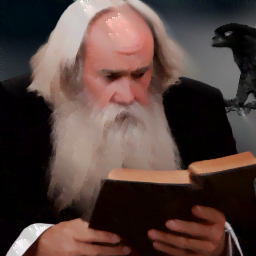As a scientist, Charles Darwin was fascinated by the story of the Bible book of Exodus. He saw it as a perfect example of natural selection at work, as the Israelites struggled to survive in the harsh conditions of the desert.
According to Darwin’s interpretation of the story, the Israelites were a group of people who had adapted to the conditions of their environment, with their nomadic lifestyle and ability to survive on minimal resources. However, when they were enslaved by the Egyptians, their way of life was threatened.
But through the leadership of Moses, the Israelites were able to survive and thrive in the face of adversity, using their skills and knowledge to outwit their oppressors. Darwin saw this as a perfect case study in the process of adaptation and natural selection, as the Israelites were able to evolve and survive in a changing environment.
However, Darwin also noted that the story of Exodus was not without its pitfalls. The Israelites struggled with issues of morality, including the worship of false idols and the temptation of greed and power. Nevertheless, they were able to overcome these challenges and emerge as a strong and resilient people.
In the end, Darwin saw the story of Exodus as a powerful metaphor for the struggle of life itself. As he famously said, “It is not the strongest of the species that survives, nor the most intelligent, but the one most responsive to change.” In the story of Exodus, the Israelites were able to adapt and thrive in the face of change, and their story continues to inspire us today.
And on a lighter note, Darwin also noted that, “I am a firm believer in the idea that luck plays a significant role in life. After all, what could be luckier than being born at the right time, in the right place, and with a mind like mine?”



